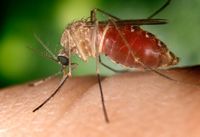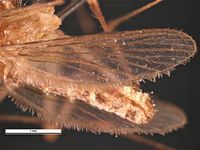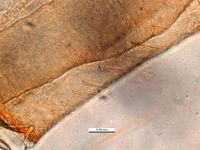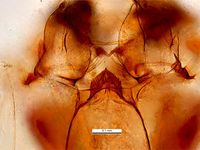Difference between revisions of "Culex quinquefasciatus"
| Line 3: | Line 3: | ||
[[File:Culex_quinquefasciatus_E-A-Goeldi_1905.jpg|300px|thumb|''Culex quinquefasciatus''<br/>From: Emil August Goeldi (1905), Os Mosquitos no Pará.<br>Source:[http://commons.wikimedia.org/wiki/File:Culex_quinquefasciatus_E-A-Goeldi_1905.jpg Wikimedia Commons]]] | [[File:Culex_quinquefasciatus_E-A-Goeldi_1905.jpg|300px|thumb|''Culex quinquefasciatus''<br/>From: Emil August Goeldi (1905), Os Mosquitos no Pará.<br>Source:[http://commons.wikimedia.org/wiki/File:Culex_quinquefasciatus_E-A-Goeldi_1905.jpg Wikimedia Commons]]] | ||
<font color="#800000">'''''Culex quinquefasciatus'''''</font> Say, 1823 (southern house mosquito)<br/> | <font color="#800000">'''''Culex quinquefasciatus'''''</font> Say, 1823 (southern house mosquito)<br/> | ||
| − | There is evidence that this species has evolved in Africa but is now widely distributed in the tropics and subtropics due to unintentional introductions by humans. It is closely related to ''[[Culex pipiens]]'' and both species interbreed in some non-indigenous areas (giving the appearance that both are subspecies). It feeds predominantly on birds and mammals and transmits various diseases, like West Nile virus, Japanese encephalitis (JE), St. Louis encephalitis and bancroftian (or lymphatic) filariasis. | + | There is evidence that this species has evolved in Africa, but it is now widely distributed in the tropics and subtropics due to unintentional introductions by humans. It is closely related to ''[[Culex pipiens]]'' and both species interbreed in some non-indigenous areas (giving the appearance that both are subspecies). It feeds predominantly on birds and mammals and transmits various diseases, like West Nile virus, Japanese encephalitis (JE), St. Louis encephalitis and bancroftian (or lymphatic) filariasis. The adults are about 4 mm long, brown with some parts darker brown. The abdomen has lighter, rounded bands. It breeds in any type of standing water, including containers. The life cycle from egg, over 4 larval stages, to mature adult might be as short as 2 weeks under favorable conditions. |
For details see the respective page in [[wikipedia:Culex quinquefasciatus|Wikipedia]]. | For details see the respective page in [[wikipedia:Culex quinquefasciatus|Wikipedia]]. | ||
Revision as of 20:58, 1 January 2014
Taxonomic position
|
|---|
no parent categories |
| Literature database |
|---|
| 1398 articles sorted by: |
| • year (recent ones first) |
| • research topics |
| • countries/regions |
| • list of natural enemies |
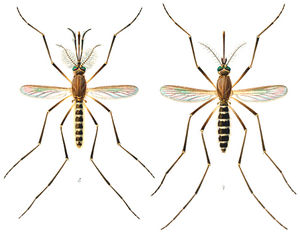
From: Emil August Goeldi (1905), Os Mosquitos no Pará.
Source:Wikimedia Commons
Culex quinquefasciatus Say, 1823 (southern house mosquito)
There is evidence that this species has evolved in Africa, but it is now widely distributed in the tropics and subtropics due to unintentional introductions by humans. It is closely related to Culex pipiens and both species interbreed in some non-indigenous areas (giving the appearance that both are subspecies). It feeds predominantly on birds and mammals and transmits various diseases, like West Nile virus, Japanese encephalitis (JE), St. Louis encephalitis and bancroftian (or lymphatic) filariasis. The adults are about 4 mm long, brown with some parts darker brown. The abdomen has lighter, rounded bands. It breeds in any type of standing water, including containers. The life cycle from egg, over 4 larval stages, to mature adult might be as short as 2 weeks under favorable conditions.
For details see the respective page in Wikipedia.
Synonyms:
Culex aikenii
Culex fatigans
Culex pipiens fatigans
Culex pipiens quinquefasciatus
| Vernacular names | |
|---|---|
| • English: | southern house mosquito brown house mosquito |
The literature database currently contains 1398 publications for Culex quinquefasciatus. (See box above/on left.)
- Other images of Culex quinquefasciatus (PaDIL and Wikimedia Commons - click to enlarge)
